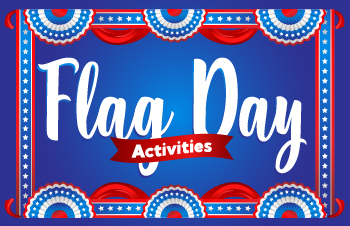Auditory Learning Style
The auditory learning style means a person learns best by listening. Music, video clips and conversations are their ideal way of learning. Auditory learners tend to do well in a traditional school environment listening to lectures, and also contributing to discussions. Multimedia curriculum is also great for improving on their auditory learning skills.
On this page you will find characteristics of an auditory learner, which type of curriculum works best, tips on how to maximize their learning potential and more!
What Are the Auditory Learner’s Characteristics?
People who are auditory-aural learners usually share these characteristics:
- Talk frequently, to self and to others
- Prefers spoken directions
- Have difficulty concentrating in noisy environments
- Enjoy lectures and discussions
- Remember names, not faces
- Express emotion by tone and volume of voice
- Musically minded
Study Tips for Auditory/Aural Learners
Thinking out loud is the key to removing roadblocks on an auditory learner’s educational journey; parents and educators can best assist these students by offering a listening ear and offering prompts to help them think through the information. When your student is struggling to understand a new concept, encourage him or her to talk through the concept or problem. Use terms such as “explain,” “describe,” or “discuss” to promote understanding.
Improve your child’s educational experience by taking advantage of their auditory learning skills with the following study tips for auditory learners:
- Repetition – Since speaking is a key component of the auditory learning style, having your student repeat an idea in their own words will greatly enhance their learning experience.
- Q&A sessions – These type of sessions are great for keeping aural learners engaged and help them easily absorb important information about specific topics.
- Debates – Auditory learners are often social butterflies, and because they need to listen, speak and interact to learn best, debates are usually a fun way to transform and elevate conversations on a specific subject.
- Music – Songs are an excellent way to engage your child and a great way to start learning concepts. For younger students, starting out with the alphabet song helps them learn and remember the order of the alphabet, which is key when learning to read. Older children can learn about science from songs that teach about the digestive, skeletal, and respiratory systems, just to name a few. In addition, students can learn about sound waves through music as well as other concepts.
- Read alouds – Reading out loud to your student also helps them learn, especially if you have your child repeat after you. As they advance in their reading skills, auditory learners should sound out words and break down the syllables of each word. Repetition is key!
- Book clubs – Having your child explain concepts to others verbally gives them the opportunity to talk through situations and information, not to mention fully absorb it.
- Self-recordings – When students hear themselves explaining definitions out loud, it helps them grasp concepts and expand on them. Most smartphones offer an audio recorder which can be played back at anytime.
- Group projects/study buddies – Teaming up with another student and verbally reinforcing the information will help auditory learners retain facts and details.
- Podcasts – These are incredibly useful for auditory learners, and can take the place of music on long car rides or even while exercising!
- Show & Tell – Pick a day of the week to have show & tell. Your student can pick an object and tell a story about it. To make it a little more challenging, have them use some adjectives or vocabulary words they are learning!
- Verbal Games – It’s no secret that learning through play is effective. For aural learners games like “Just a Minute” and “Fact or Fiction” are a perfect way to test or increase knowledge on certain topics. “This or That” is another great game that benefits auditory learners. If the topic is “sharks”, warm or hot water? Bones or cartilage? Five or Six senses? Scales or no scales? And so on.
- Reciting – Reciting information out loud helps auditory learners retain what is being taught to them.
How Time4Learning Works for Auditory/Aural Learners
We know that auditory learners learn best by actively listening, whether it be to an instructor, stories, or video clips. However, most traditional homeschool programs available are often designed much like the curriculum you find in the classroom, which doesn’t support students who thrive off an auditory learning style.
Our online curriculum works especially well for a person who learns by hearing. Younger students enjoy the colorful design, interesting lessons, interactive platform, and the multimedia format of Time4Learning. The material for older students feature video lessons with instructors explaining information step-by-step, thus allowing students to think out loud and understand the material better.
Our online curriculum is designed to engage and challenge your child to succeed. Here are just a few reasons why parents of auditory learners love Time4Learning’s online homeschool program:
- One of the most common forms of media that Time4Learning utilizes is sound and music. Our lessons have videos with engaging sounds, different voices, and often music to ensure our auditory/aural learners are engaged and having fun.
- For younger learners who have just begun reading, our lessons read the information out loud, and then allow students to repeat afterwards.
- Our educational games for the lower level grades incorporate sing-a-longs which engages the auditory senses for our students.
- Lessons can be repeated, thereby allowing students to learn at their own pace without peer pressure or fear of making mistakes so they can embrace being themselves.
- The self-driven lessons encourage students to become active learners through exploration and discovery. This highly stimulates auditory learners’ curiosity.
Sign up for Time4Learning and gain access to a variety of educational material, which will engage and challenge your child to succeed. Make Time4Learning a part of your educational resource toolbox for teaching your unique learner.






